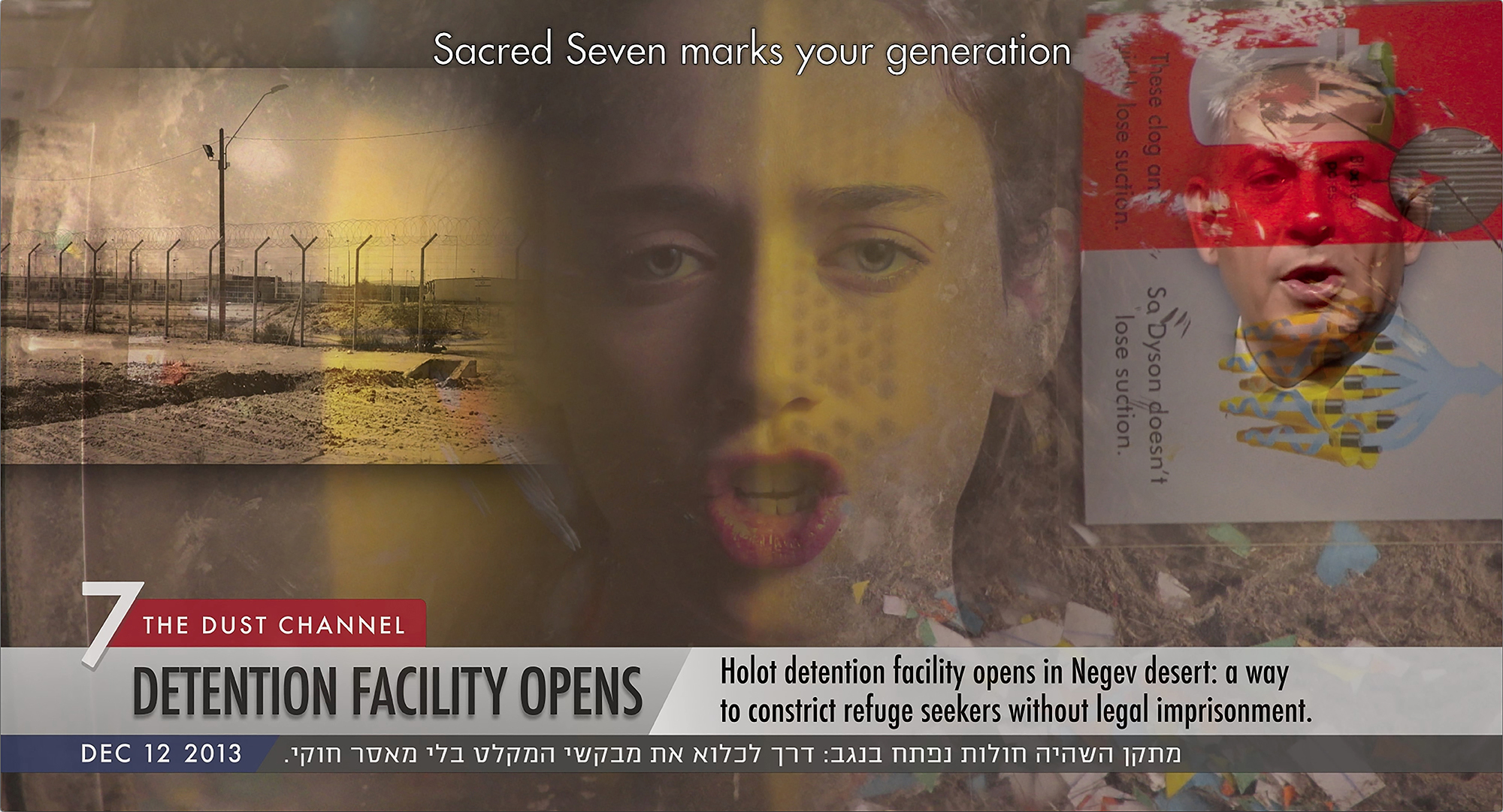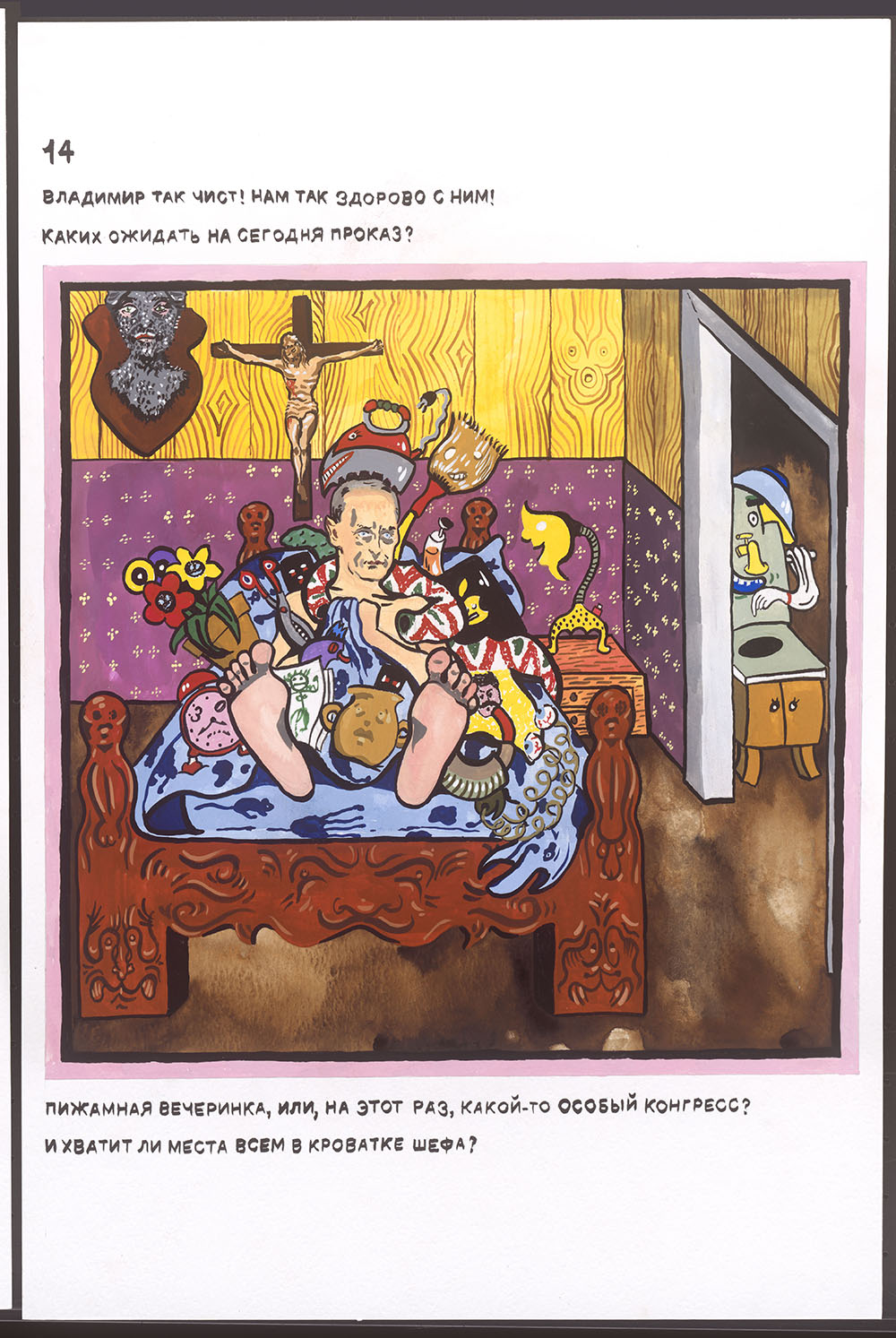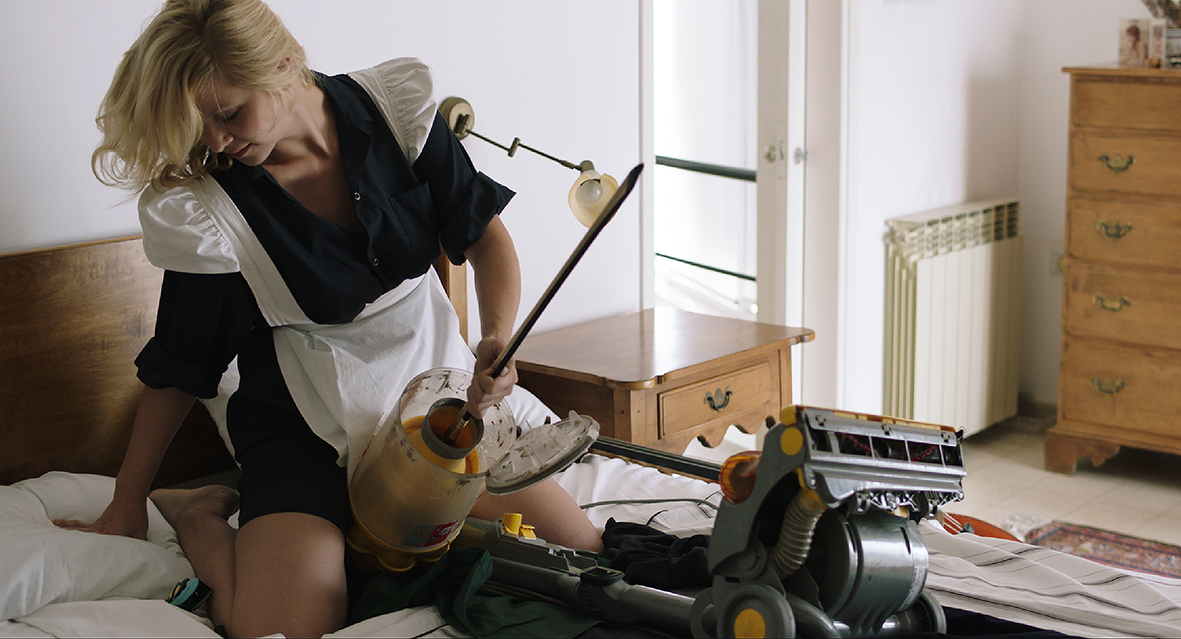
International acclaimed artist takes a satirical look at power, desire and global politics in new exhibition at Kunsthal Charlottenborg
In his first-ever solo show in Denmark, the artist, writer, director and professor Roee Rosen presents his 'Vladimir’s Night' series and the film 'The Dust Channel', which was previously shown at documenta 14. The works will be on display at Kunsthal Charlottenborg from 31 October.
Roee Rosen (b. 1963 in Rehovot) is a voice of social critique in his native Israel. He has created an artistic universe that undermines normative ideas through fiction and satire while merging Israeli and global politics with myths and historical references. Using a variety of fictional characters and iconographic motifs, Rosen draws on – and transforms – a range of materials ranging from the historical avant-garde to popular media, political propaganda and classic fairy tales for children. To emphasise his focus on artistic expression during exile and oppression, he often works under pseudonyms. This is also the case at Kunsthal Charlottenborg: all works are presented as having been created by the Russian author and artist Maxim Komar-Myshkin, who, having escaped from Russia to Israel, struggled with his own paranoia and with the restrictions imposed by his surroundings. This battle between inner and outer powers is also reflected in the exhibition The Mosquito-Mouse and Other Hybrids at Kunsthal Charlottenborg.

The exhibition presents the series Vladimir’s Night (2011–14), an album of thirty-nine gouaches and verses that takes an incisively satirical look at fetishism and power while drawing inspiration from the so-called unofficial Moscow artists of the 1960s and 1970s, including Kabakov and Pivovarov. Vladimir’s Night is a hybrid of a children’s book, a tale of gory martyrdom and a twisted political treatise in which the main protagonist, Vladimir, is both a young child and a political leader. He is surrounded by animated objects and absurd scenarios. It all starts out as a cheerful visual fable, but slowly slips into a violent and grotesque narrative about power and torture. Vladimir’s Night was written by Maxim Komar-Myshkin, who, upon fleeing to Tel Aviv in the early 2000s, founded the artists’ collective Buried Alive Group, whose videos and manifesto are also included in the exhibition.

The exhibition also features the film The Dust Channel (2016), which attracted a great deal of attention at documenta 14. Constituting the final chapter in a series based on Komar-Myshkin’s life as an artist, the film is an operetta about all the different kinds of cleansing and purification that take place in a bourgeois Israeli family whose fear of dirt, dust and any foreign matter results in an almost perverted devotion to household appliances. The work plays on the connection between dust and sand by incorporating the Israeli desert, where political refugees are detained and the fear of foreigner’s flourishes. The prison is called Holot, the Hebrew word for sand. An absurd and politically incisive fiction, The Dust Channel creates a polemic space for addressing current societal issues.
Roee Rosen is a professor at the HaMidrasha College of Art, Kfar-Saba as well as at the Bezalel Art Academy of Arts and Design, Jerusalem. In his practice, Roee Rosen addresses subjects such as power, forms of desire and structural violence. The exhibition is accompanied by a small publication featuring texts by Paul B. Preciado. The publication will be launched this autumn.
Further info about the exhibition here.
The exhibition is curated by Anne Mikél Jensen and supported by the Danish Arts Foundation, Grosserer L. F. Foght’s Foundation, Knud Højgaard’s Foundation and the Obel Family Foundation.
Roee Rosen
The Mosquito-Mouse and Other Hybrids
31 Oct 2019 – 16 Feb 2020
Opening: 30 Oct 2019 at 5pm